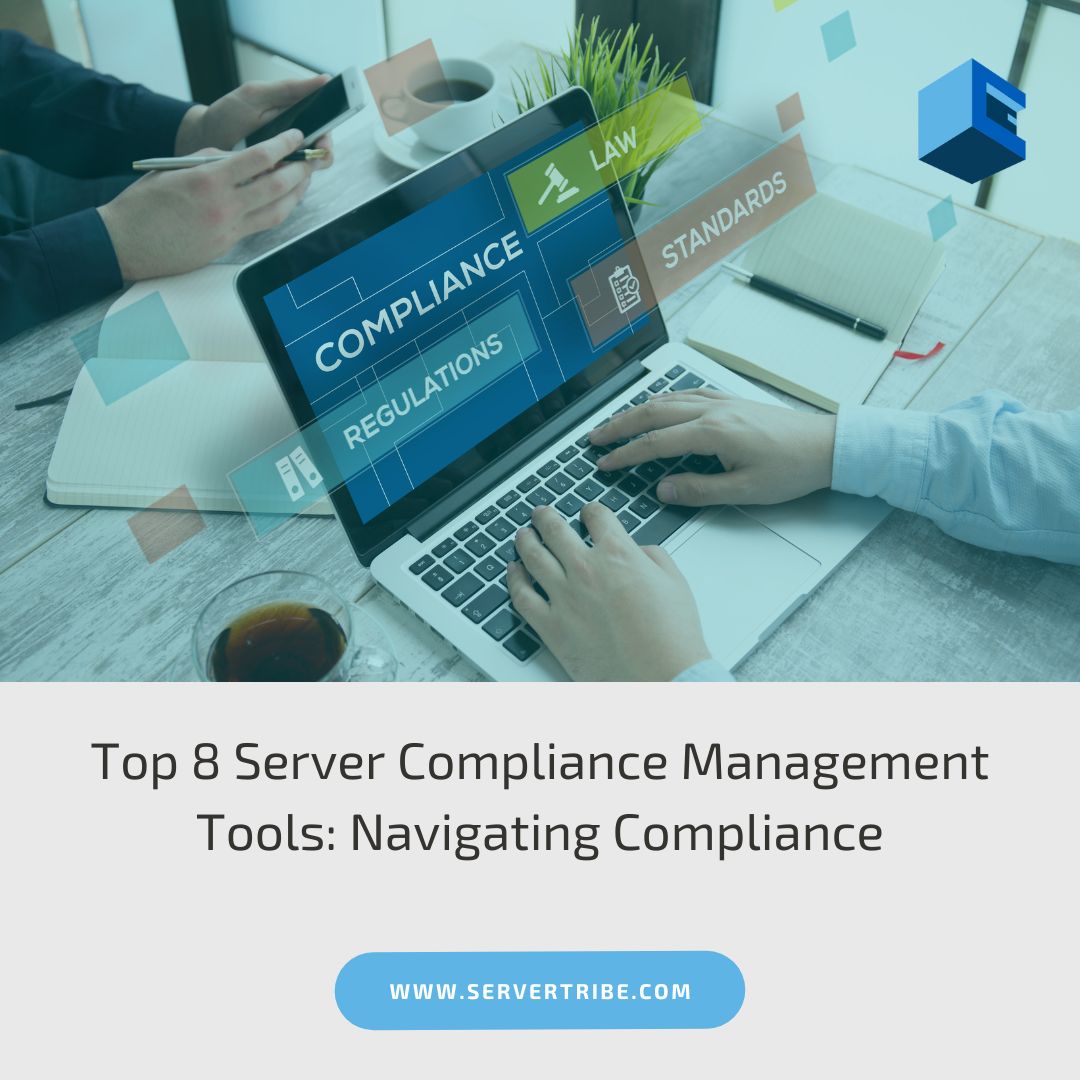
Top 8 Server Compliance Management Tools: Navigating Compliance
Maintaining good server compliance is critical for enterprises in today’s digital age, where data breaches and cyber threats are common. Server compliance management tools have become critical assets for organisations, assisting them in dealing with the complex network of laws, standards, and security protocols.
These tools not only make compliance processes easier, but they also improve organisations’ overall security posture. Fortunately, various cutting-edge server compliance management tools are available, allowing organisations to easily navigate this complex landscape.

The Crucial Role of Serer Compliance Management Tools
Server compliance management tools are essential assets for firms trying to maintain compliance with various legislation, security requirements, and internal rules. These tools make it easier to monitor, audit, and impose compliance procedures inside server architecture. They verify that servers satisfy the required criteria set by regulatory agencies and corporate standards by automating these operations.
These solutions assist enterprises in maintaining the integrity and security of their server infrastructure through frequent audits, automated assessments, and policy enforcement mechanisms, effectively lowering the risks associated with noncompliance while guaranteeing alignment with critical industry standards.
Key Features of Effective Server Compliance Management Tools
- Automated Assessments
Automated compliance evaluation tools automate normal server tests, identifying potential vulnerabilities and guaranteeing conformance to established settings and standards.
- Patch Management
These tools’ efficient patch management capabilities enable the prompt discovery and distribution of software updates, which is critical for closing security gaps and resolving vulnerabilities.
- Policy Enforcement
The server compliance management tools guarantee that security policies and configurations are strictly followed, ensuring consistency across the server architecture. To prevent unauthorised modifications or access, they enforce established rules and settings.
- Reporting and Analytics
Effective tools generate thorough and easy-to-understand reports that show areas of noncompliance and give suggestions for improvement. They analyse data to provide actionable insights and remedial solutions.
- Maintenance and Continuous Updates
Regular updates and maintenance guarantee that the tool is always up-to-date with the most recent compliance standards and growing security threats, ensuring continuous protection.
These features enable enterprises to actively maintain server compliance, improve security measures, and quickly fix any discrepancies or vulnerabilities in their server architecture.
Top Server Compliance Tools
Chef provides advanced infrastructure management automation, including compliance and configuration management across many server environments.
Puppet provides compliance management modules that enable organisations to develop, analyse, and enforce compliance policies under frameworks such as CIS, NIST, and others.
Attune is a server automation solution that can help you ensure compliance by running regular automated checks, patching outdated software, and configuring infrastructure across multiple virtual and physical servers.
Ansible’s specialised modules handle compliance checks and remediation, ensuring that servers adhere to demanding security regulations and industry requirements.
Tenable.io, known for its continuous monitoring and assessment, provides real-time visibility into vulnerabilities and compliance status while supporting numerous regulatory requirements.
This application offers comprehensive vulnerability management and compliance tests, allowing organisations to analyse server compliance against various requirements.
Sysdig Secure specialises in container security, providing powerful compliance monitoring designed specifically for cloud-native systems. It makes it easier to comply with essential requirements like PCI and GDPR by establishing comprehensive security measures.
Tripwire distinguishes itself by offering file integrity monitoring and continuous evaluation capabilities. These features guarantee that standards and regulatory requirements are met on an ongoing basis inside an organisation’s infrastructure. Tripwire assists in discovering deviations, strengthening security, and maintaining compliance by continually checking file integrity and conducting evaluations.
Factors to Consider When Choosing a Tool
When choosing a compliance management platform, several essential elements should be considered:
Compliance Requirements
Confirm that the tool complies with relevant regulatory standards for your sector or location, such as HIPAA, GDPR, and PCI DSS, and that it caters to specific compliance needs critical to your organisation’s operations and legal duties.
Integration and Scalability
Check the tool’s scalability to expand with your organisation and interoperability with existing systems to ensure easy integration and minimise potential interruptions. As your firm grows and changes, ensuring smooth expansion and integration reduces interruptions and allows for more effective operations.
Reporting Capabilities
Examine the tool’s reporting capabilities, validating its ability to deliver detailed insights and analytics. This thorough reporting promotes informed decision-making by providing extensive data and analysis necessary for effective strategies and compliance management inside your organisation.
Conclusion
Lastly, choosing the correct server compliance management platform is critical for companies that want to maintain high compliance requirements. These tools automate and speed compliance processes and strengthen an organisation’s server infrastructure’s overall security posture. Businesses may negotiate the complex landscape of compliance with confidence and speed by harnessing the capabilities of these technologies.

Comments